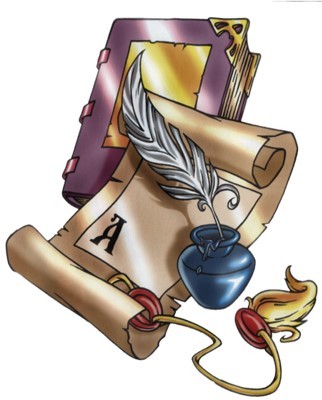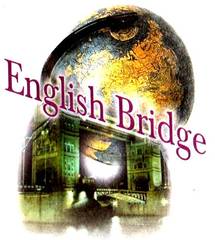

Учимся красиво говорить!
Для выражения мнения, согласия или несогласия,
предположения или намерения... начните со следующих слов/фраз:
Opinion
I think / I believe / I reckon / I suppose/ I guess I do believe that…
In my opinion, … / To my mind, .../ In my view, .../ As far as I am concerned, I think...
I am (deeply) convinced that.../ My view is just the opposite
There is no denying that… (on ne peut nier que)
I maintain that…/ I am convinced that…/ It all boils down to…
Agreement
I agree with.../ I do agree with…/ I entirely agree with…/ I completely agree with…
I think you’re (absolutely) right. / That’s true/ Definitely/ Absolutely
Disagreement
I disagree with…/ I don’t (quite) agree/ I don’t think so
I think you’re wrong/ Nonsense! / Rubbish!/ This is absurd!
To put something in perspective/in question
Let us consider/the other side of the coin/the cons…
Exemplifying
Let me give you an example/ Let us consider this example
The best example I know is…
For example/ For instance…
To quote an example…/ Suppose that…
Probability
Perhaps, maybe
It may/might/could/is likely to + BV
It looks as if...
Intention
I intend to + BV
I’m thinking of + BV –ing
I’m planning to...
I’m determined to...
I’m convinced that I should…
I’d prefer to do…/ I’d rather do…
Concluding
In conclusion I would say that…
Let me conclude by saying that…
All this goes to show that…
The problem may be summarized thus/ as follows...
To come to a conclusion/ to the conclusion that…
On the whole…

- Уроки английского для начинающих с тыквами - Pumpkin:
- Body Parts Vocabulary pt.1: Kids English Lesson with Pumkin.com
- Body Parts Vocabulary pt.2: Kids English Lesson with Pumkin.com
- Body Parts Student Introductions pt.3: Kids English Lesson with Pumkin.com
- Body Parts Song pt.4: Kids English Lesson with Pumkin.com
- Body Parts Vocabulary Cartoon pt.5: FACE & BODY Kids English Lesson by Pumkin.com
- Learn Basic English Colors 1 - pumkin.com kids English vocabulary cartoon
- Learn Basic English Colors 2 - Vocabulary by Pumkin.com
- Colors - Basic English Grammar Cartoon - "IT IS RED. IT IS A RED BALLOON" by Pumkin.com
Learn Grade 1 - Science - The Parts Of The Body and Their Functions
Grade 1 - Social Studies, Good Manners activity project: Table setting with paper cut outs.
Learn Grade 2 - EVS - Communications Grade 1 - Science: Projects, activities, work pages, and games about plants and their roots. Grade 1 - Science activity project: Collect nature objects and categorize into different shapes.
- Видеофильм Учимся читать по-английски.
- Английский для детей (со Степашкой и Хрюшей). Урок 1 (здесь же Вы найдёте остальные уроки из этого раздела)
- Разговорный английский для начинающих
-
- Английский для начинающих: урок 1
- Знакомство
- Английский для начинающих: урок 2
- Английский для начинающих: урок 3
- D'oh!, duh!
- Идиомы английского языка: раздел 1
- Путешествия
- Идиомы с названиями животных
- Wicked
- Mwah!
- Английский для начинающих: урок 4
- Big up
- Blog
- Buff
- Sick
- Идиомы английского языка: раздел 2
- Talk to the hand
- Английский для начинающих: урок 6
- Lovely jubbly
- Dress code
- Make my day!
- Pre-nup
- Cell, Text
- Bruv
- Английский для начинающих: урок 5
- Clueless
- Pre-owned
- Chav
- Manky
- Wysiwyg
- Идиомы с названиями частей тела
- Cred
- A slip of the thumb
- Issue
- Phwoar!
- Credit crunch (1)
- Diamond geezer
- Wiki
- Английские пословицы и поговорки
- Разговорные английские фразы
- Разговорный английский язык: слова и выражения в диалогах и рассказах
-
- Catch someone's eye, eye-catching
- Comfort zone
- Sheepish
- He’s like a bull in a china shop, put the cart before the horse, the elephant in the room
- Have two left feet, have itchy feet, it cost an arm and a leg, put your foot in it
- No-win situation, win-win situation
- Carrying coals to Newcastle
- Bright-eyed and bushy-tailed
- All about imperative verbs
- Fly by the seat of one's pants
- Keep me posted
- Be hooked on something
- Why the long face?
- Фразовые глаголы: to do without, to go without
- Get down with the kids
- No strings attached
- Playing up
- Have cold feet
- Get one's hands dirty
- Get your knickers in a twist
- Take the weight off one's feet, put one's feet up
- Фразовые глаголы: to run out of ...
- Фразовые глаголы: to take over
- Фразовые глаголы: to get on
- Фразовые глаголы: to catch up
- Фразовые глаголы: to carry on
- Blow your own trumpet
- Be on a roll
- Wake up and smell the coffee
- Let the cat out of the bag
- Under the weather
- You can't have your cake and eat it
- Work for peanuts
- Nip something in the bud
- Happy bunny
- Jump the gun
- Hold your horses
- Head over heels
- Paint the town red
- Sinking feeling
- Wrap around | round little finger
- Mean
- In disgrace
- About to ..., just
- Intelligence
- Dragon
- Don't get me wrong!
- Scam
- Lucky
- Have = eat
-
- So--"So were you transferred here, or did you move voluntarily?"
-
- Я из Норвегии (, или опять про лыжи)
- Почти по Райкину : Вкус спесифисский!!!
- Телевизора у меня нет, только читаю
- Память "Титаника" держит
- И через 100 лет "Титаник" жив в литературе
- Странная живучесть ботинок в море
- Веласкес : воплощение золотого века
- По-человечески о жизни и смерти Аттилы, вождя гуннов
- Тавтологии (повторения) рассмотрите в контексте
- Останки Николая Коперника найдены через сотни лет
- Норвегия : оазис английского языка
- Love--Шесть любовных ситуаций в простых выражениях
ОРІГІНАЛ матеріалу: http://audiorazgovornik.ru
-
- Mind---"Would you mind giving me a hand with this?"
by Aaron Knight : http://www.phrasemix.com/
You're cleaning the kitchen. Your wife isn't helping you. You want to ask her to help, but you'd like to ask politely so that you don't start a fight. You say:
Вы делаете уборку на кухне. А жена вам не помогает. Вы хотите попросить её помочь, но вежливо, чтобы не возникло ссоры. Вы говорите:
Baby, would you mind giving me a hand with this? = Дорогая, ты мне немножко не поможешь?
Baby дорогая, милая (обращение к жене, любимой) Words like "baby", "sweetheart", "darling", and "dear" are sometimes used between couples in place of each other's names. It can sound more sweet and loving to use these words than to call someone by name.
Слова "baby", "sweetheart", "darling" и "dear" порой используют между собой (супружеские) пары вместо имён. Они звучат ласковее, любовнее, чем простые имена would you mind (doing something) вы не против (того, чтобы сделать что-то)?
"Would you mind ___ing?" is a good way to politely ask for something that isn't too much trouble for the other person. Some more examples:
"Вы не могли бы (сделать что-то)? - это хорошее, вежливое выражение просьбы сделать вам что-то необременительное для другого человеа. Например:
Would you mind passing me that bottle over there?
Вы не передадите мне вон ту бутылку?
Would you mind watching my bag for a few minutes?
Вы не посмотрите за моей сумкой несколько минут?
Would you mind sending me a list of everyone who's coming?
Вы не пришлёте мне список всех, кто должен прийти?
give (someone) a hand with (something) немножко помочь
"Give (someone) a hand" means to help someone. The word "help" has a wide meaning. It can be used to describe helping someone with a small problem, or with a serious emergency. So when you're asking for help, it's important to express how serious the problem is. For big emergencies, you just yell:
"Give (someone) a hand" значит "помочь кому-то". Слово "help" = помогать имеет широкое значение , может означать и мелкую помощь, и серьёзную помощь при несчастном случае. Поэтому при просье о помощи важно дать понять, насколько серьёзна ваша проблема. Если ваша жизнь в опасности, вы просто кричите во весь голос:
Help!
Помогите!
For smaller but still serious problems, you can ask:
Для меньших, но всё же серьёзных проблем вы можете попросить:
Can you help me?
Вы мне не поможите? = Помогите мне, пожалуйста
And for small problems that aren't an emergency, you ask:
Когда проблемы мелкие (не угрожают здоровью и жизни), вы просите:
Can you give me a hand?
Помогите мне немножко, пожалуйста.
- Mind---"Would you mind giving me a hand with this?"
